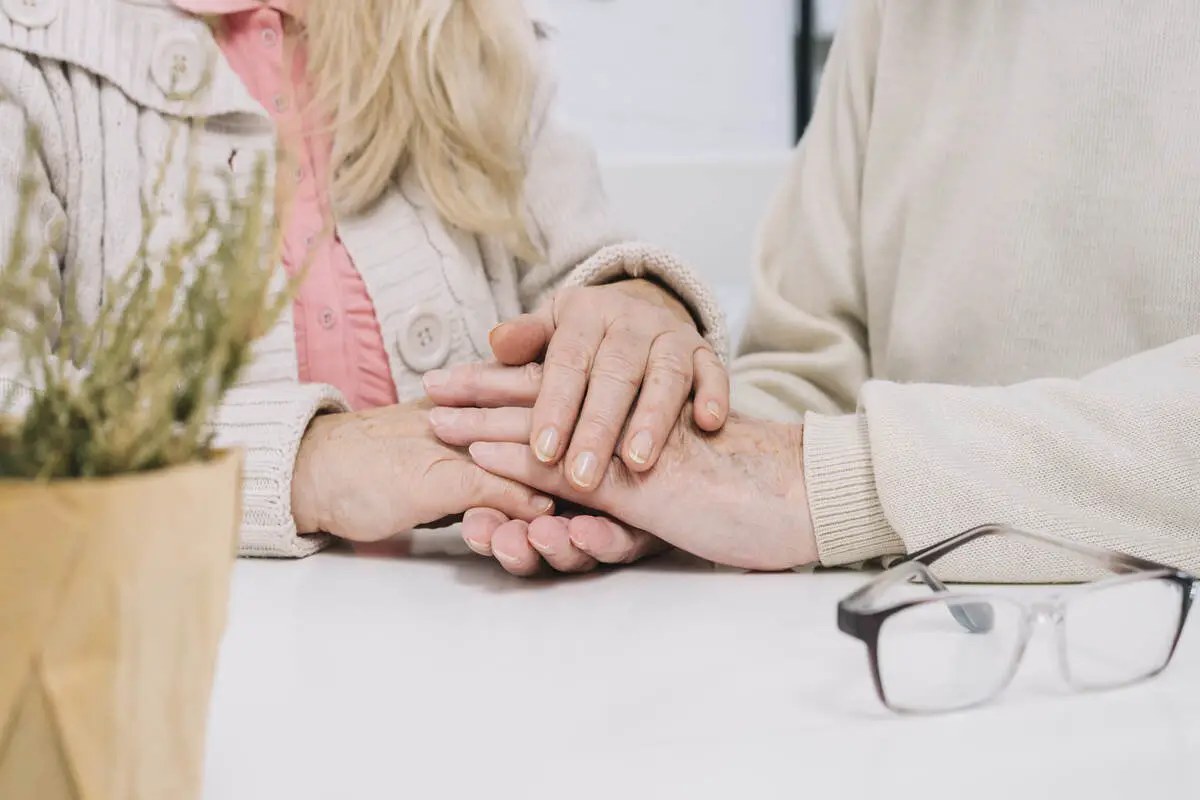
Call Us Now! 630-202-2421
Specialized Caregiving for Parkinson's Patients

Understanding the Unique Needs of Parkinson's Patients
Parkinson's disease presents a unique set of challenges, both for those who live with it and for their caregivers. This neurodegenerative disorder, characterized by its progressive impact on motor functions, demands not just any care but specialized caregiving tailored to its complexities. Understanding these unique needs is the first step in providing effective support. Specialized caregiving involves not only addressing the physical aspects of Parkinson's but also understanding and supporting the emotional and psychological needs of the patients. This comprehensive approach ensures that patients receive care that is not only medically effective but also emotionally supportive, enhancing their overall quality of life.
The Changing Landscape of Parkinson's Care
As Parkinson's progresses, the needs of patients evolve. Initially, assistance might be minimal, focused on managing medications and attending medical appointments. However, as the disease advances, patients often require more comprehensive support. This includes help with daily tasks, mobility assistance, and emotional support. Recognizing and adapting to these changing needs is crucial in Parkinson's care. Caregivers must be vigilant and responsive to these changes, ensuring that patients receive the appropriate level of care. This dynamic approach is key to managing Parkinson's effectively and maintaining patients' highest possible quality of life.
Emotional and Psychological Support
Beyond physical symptoms, Parkinson's can have a significant emotional and psychological impact. Patients may experience feelings of anxiety, depression, and isolation. Specialized caregiving for Parkinson's patients includes addressing these mental health aspects providing empathy, encouragement, and companionship. Caregivers must create a supportive and understanding environment where patients feel safe expressing their emotions and concerns. This emotional support is a critical component of Parkinson's care, as it can significantly improve the mental well-being of patients, helping them to cope better with the challenges of the disease.
Benefits of Specialized Home Care for Parkinson's Disease
Specialized home care offers numerous benefits for Parkinson's patients. Being in a familiar environment can significantly enhance their comfort and sense of security. Moreover, personalized home care allows for more consistent monitoring and tailored support, catering to the individual's evolving symptoms and needs. This type of care helps maintain a sense of normalcy and independence, which is crucial for the emotional well-being of Parkinson's patients. Additionally, specialized home care enables caregivers to closely observe the progression of the disease and make timely adjustments to the care plan, ensuring the best possible outcomes.
Consistency and Personalization
In specialized home care, the approach is always personalized. Caregivers familiar with Parkinson's disease can adapt their methods and routines to suit the patient's specific stage and symptoms, providing a consistent and comforting presence. This bespoke approach not only caters to the physical requirements of the patients but also respects their personal preferences and routines, thus maintaining a sense of individuality and dignity. Consistent care from familiar faces helps build trust and a deeper bond between the caregiver and the patient, which is invaluable in managing the emotional aspects of the disease.
Safety and Accessibility
Creating a safe and accessible home environment is paramount. This might involve modifications to prevent falls, making daily tasks easier, and ensuring that the home is conducive to mobility and comfort. These modifications can include wider doorways for wheelchair access, specialized bathroom fixtures, and the removal of trip hazards throughout the home. Such changes enhance safety and promote independence, allowing patients to engage in daily activities with minimal assistance, thus boosting their confidence and quality of life.
Creating a Comfortable Environment for Parkinson's Care
A comfortable environment plays a pivotal role in the well-being of Parkinson's patients. This involves physical comfort and creating a space where they feel emotionally supported and understood. Comfort in Parkinson's care goes beyond physical adjustments; it's about creating an atmosphere of warmth and acceptance where patients can feel relaxed and at peace.
Tailoring the Living Space
Adjustments to the living space can make a significant difference. This includes installing grab bars, using non-slip mats, and ensuring the home is navigable for someone with mobility challenges. Personalizing the space with items that bring joy and comfort, such as favorite photographs, art, or keepsakes, can profoundly impact a patient’s emotional well-being.
Fostering Emotional Well-being
Creating a comfortable environment also means addressing the emotional needs of the patient. This includes engaging in activities they enjoy, providing opportunities for social interaction, and ensuring they have a voice in their care. Encouraging hobbies and interests that the patient can still participate in plays a crucial role in maintaining their sense of self and provides a valuable outlet for expression and enjoyment.
Tailored Solutions for Parkinson's Home Care
Specialized caregiving for Parkinson's patients often requires tailored solutions. These solutions are not one-size-fits-all but are customized to address each patient's needs. This might involve specific exercise routines, dietary adjustments, and personalized symptom management strategies.
Integrating Therapy and Care
Integrating various forms of therapy, such as physical, speech, and occupational therapy, into the care plan is often beneficial. These therapies can help maintain as much independence as possible and enhance the quality of life.
Medication Management
Proper medication management is crucial in Parkinson's care. This includes ensuring medications are taken on time and monitoring for side effects or interactions.
Connecting with the Right Caregivers
Finding the right caregivers is essential. Family members and professional caregivers must collaborate to ensure the best possible care. This includes open communication, ongoing education about Parkinson's, and understanding the emotional journey involved in caregiving.
Support for Family Members
Family members often play a vital role in caregiving. Providing them with support, resources, and respite care options is vital to sustain the long-term well-being of both the patient and the caregiver.
Professional Caregivers and Healthcare Providers
Professional caregivers and healthcare providers specializing in Parkinson's care bring invaluable expertise and support. They can offer insights, techniques, and approaches that might be new to family caregivers, enhancing the overall care plan.
Conclusion
In conclusion, specialized caregiving for Parkinson's patients is not just about addressing physical symptoms. It's about understanding the unique challenges of the disease, creating a nurturing and safe environment, and providing tailored solutions to enhance the quality of life for those affected. For those seeking specialized care in this area, European Best Care offers the expertise and compassionate support needed to navigate the complexities of Parkinson's disease with dignity and respect.















